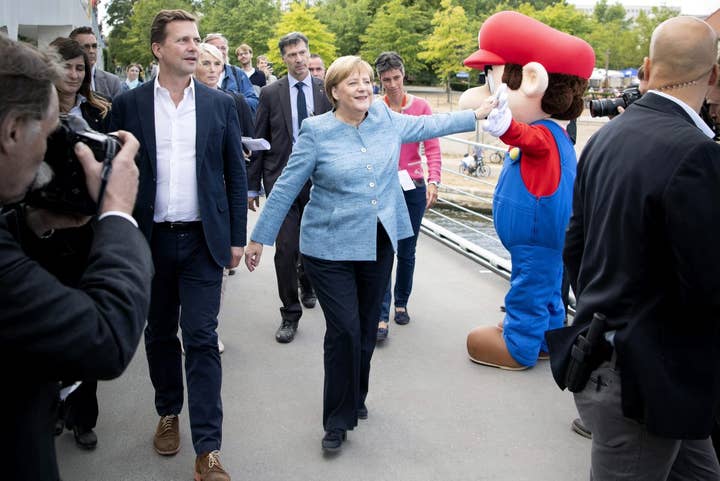What does the future hold for Germany's games policy? | Opinion
German games trade body boss Felix Falk ponders the implications of the post-Merkel era
Global financial crisis, migration, climate change, the phasing out of nuclear power, and legalisation of same-sex marriage: Angela Merkel's sixteen-year reign as Germany's Chancellor was marked by many crises and numerous milestones.
From the standpoint of the video games industry, it was the final years of her government that were particularly historic. Whereas for many years, political debates about games had focused on their potential dangers, in recent years attention began to turn to the opportunities presented by this industry -- due not least to her personal efforts.
"The end of the Merkel area does not mean the end of favourable video games policies in Germany"
This was particularly evident in 2017, when she became the first Chancellor to officially open Gamescom, the world's biggest festival for games. This was seen in Germany and worldwide as an official recognition of the importance of the medium and of the industry as a whole. The speech she gave reinforced this message.
"Computer and video games are of the utmost importance as cultural assets, as a driving force for innovation and as an economic factor, which is why I was also very pleased to come to Cologne to provide this developing industry with my recommendation."
The Chancellor's words carried particular weight, and that was borne out by the groundbreaking decisions that followed: the government announced that it was aiming to achieve a level playing field for the video games industry.
German video games companies are to be given an environment that lets them compete internationally in the field of video games development. An important part of this was the introduction of an annual €50 million budget for federal funding programme for the games industry. Government efforts have become evident on other levels as well, including an invitation to the Federal Chancellery's Open Day. This was the occasion for one of Merkel's most striking photos: a picture of her high-fiving Super Mario.

How much of Merkel's games policy is still in force?
Now that the Merkel era is over, should we expect video games policy to revert to its former status? Most certainly not. It should be no surprise that games policy was included in the various political party programmes for the 2021 federal elections, and there has long been a cross-party consensus that video games development is particularly important and deserving of government support.
This becomes especially clear each year in our Debatt(l)e Royale panel discussion held as part of the Gamescom congress, where we give the secretaries general of political parties the opportunity to present their games policies to the industry and to the community. The result: while the areas of emphasis for each party are somewhat different when it comes to their video games policies -- with some focusing on economic potential and others on cultural or technological opportunities -- all parties agree that their goal is to make Germany an even better location for the video games industry.
Games are moving to the Ministry for Economic Affairs
What can we expect from the new German government? A look at the government's programme reveals that their goals are clear: 'We aim to strengthen Germany as a games location and making the funding more permanent.'
Not only does their new programme underscore the significance of the funding programme, but it also outlines important measures designed to strengthen the location. The new coalition is following in the footsteps of the Merkel government and creating a strong foundation for games policy in coming years. This should come as no surprise when one remembers that German Chancellor Olaf Scholz had provided the video games industry with €50 million when he was the Minister of Finance with that government.
Even so, responsibility for video games is being transferred from the ministry responsible for digitalisation to the Ministry for Economic Affairs and Climate Action. Continuity will still be maintained, as the video games department is also being moved in its entirety into the area of responsibility of vice chancellor and federal minister for Economic Affairs and Climate Action, Robert Habeck.
As a result, the games strategy announced a few short months ago that was conceived in conjunction with the games industry will remain in effect. This strategy defines the way forward to continue strengthening Germany as a video games location, and encompasses not only a focus on games development, but also other important areas such as research and professional training, acquiring skilled staff, esports, serious games and the transfer of technology to other industries.
We in the German games industry look ahead with confidence: the end of the Merkel area does not mean the end of favourable video games policies in Germany. In fact, recent years have seen her and many other politicians working to create the foundation for a level playing field, efforts that will continue in future. In other words: Germany will continue improving conditions for the games industry under the new government, and people should be able to witness that in person by no later than Gamescom 2022.
Felix Falk is managing director of Game, the German Games Industry Association.